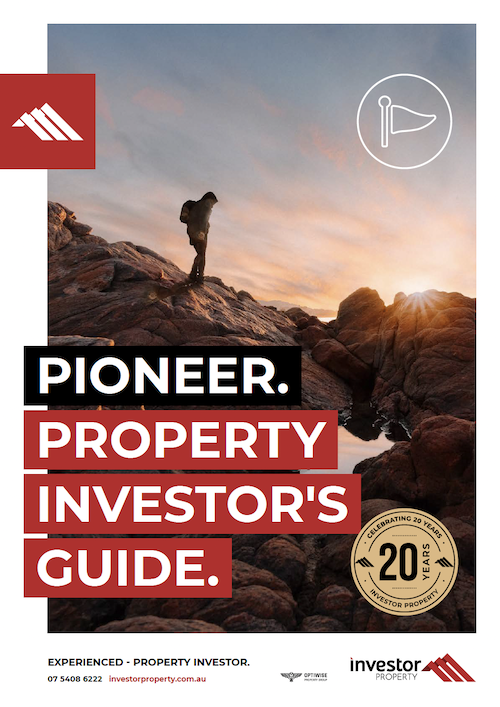If you’re looking to invest in property or you’re simply curious as to what options are available to you to purchase, sell, refinance or rent, you may be reading news articles with a keen eye to try to understand the property market. While we applaud your enthusiasm for learning more about this complex investment space, we have some words of warning when it comes to mainstream media, popular discussions and the property landscape.
News, Views and Hullabaloos

If you’ve been keeping up to date with Australian newspapers and their reporting of the Australian property market, you could think the outlook is only doom and gloom, or confusing at best with contradictory information flying around.
It’s not surprising that many people’s confidence in property is waning with headlines suggesting falling prices, rising costs, increased restrictions with lending following the banking royal commission fall out, and the ever-frustrating pending election uncertainty.
What we all need to remember is:
The media is essentially a group of companies. Those companies are responsible to their shareholders for the profits they create. While they attempt to create revenue through multiple channels such as subscription services and memberships, core to the major media outlets (past, current and future) is advertising revenue.
With the majority of revenue streams dependent on ‘buy-in’ by the readers, news headlines are written to grab attention; that way they win the business and sell advertising for the highest rate. The ugly truth is that negative news is more quickly consumed by the public (and therefore clicked on and read) and good news is harder to push through the mainstream media… it’s often considered ‘boring’ and not newsworthy.
In addition, most people don’t read beyond the initial paragraphs, and even fewer the whole article. Much of the information received is therefore filtered with most key information left to the back end of the reports, rarely seen.
When it comes to reporting on property ‘The Australian Property Market’ doesn’t actually exist, it’s a collection of very different property markets (see our blog on Property Myths!) and is certainly more than just the ‘big smoke’ of Sydney and Melbourne.
It’s also vitally important to note that these articles are, in the most part, just opinion. Others’ views and interpretations of data that is at best ‘rubbery’ and easily misdirected. It always pays to qualify the sources of the information, how it was collected, checked and verified and then applied. And, well, who has time or the requisite expertise for that, right?
Some might even say its more important to follow trend lines than headlines for real insight, yet we know that past performance isn’t always a guarantee of future results. The challenge is also that measure used to look at past and current performance is inaccurate or misleading (again, see our blog on Property Myths), so much work is required when making future decisions on current information.
What you should look for:
Property is a market and subject to the economy. The first place to start is what’s the current state of the local economy in terms of employment, income and industry. We then need to look at what is driving change into the future in these areas.
This feeds into demand, what is the current demand for property and why are people moving to or from the area. This will help build a picture of future demand. To afford property, and drive prices, they need to have jobs and access to services and amenity to keep them in the location long term. So, the relationship between the economy and population movement is key.
Of course, people move for lifestyle too, but lifestyle alone isn’t enough of a driver for economic return when making investment decision.
Demand is only part of the mix and the current and future supply, including supply constraints (or lack of), need to be reviewed in the ability for a market to satisfy demand. If an area is growing rapidly but there are no limitations on supply for the types of property in demand in that area, then it’s unlikely there will be rental or price growth.
Demand and supply are, in themselves, macro statements. Real opportunity exists where you drill down further into the type of built form the market is demanding and is in undersupply.
The other point often thrown around in the media or with generalised property ‘opinions’ is where a particular market is in the property cycle. Few genuinely understand cycles and, these too, are used in a macro sense. Some try to simplify by using a ‘property clock’, which in itself can be misleading as a cycle is best represented by a triangle than the circle of a clock; and we’re not talking an equilateral triangle – more an acute one! A market could have a protracted downswing, flat or upswing market. Peaks are generally that. Regardless of how you view it, each cycle is unique and not just to the market that it represents, but also the events that shape it in a particular season may be unlike any other in its history.
Getting down in the detail and looking at the real numbers, the needs of the people of the region and the predicted changes as a result of industry or government, are more important to your decision making than any sensational headline. Remember, consensus view is why only a very small portion of Australian’s retire independently wealthy… it’s never a replacement for independent thought.
Discussing mainstream headlines can perhaps be good for backyard BBQ chatter amongst friends but for real insight do your research, or better yet speak with an experienced and qualified property investment expert who has their finger on the pulse. Property can be the vehicle to propel you towards your wealth goals, but the journey you take depends largely on your tools (your research) and your support team. Do you want a memorable trip to enjoy for years to come or a short and disappointing run around the block or up a dead-end alley?









